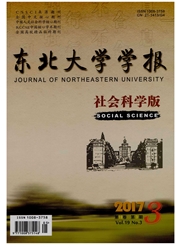

 中文摘要:
中文摘要:
游戏是一种"超日常"的实践活动,它具有自主建构性、规则性和无功利性,体现的是一种精神的审美境界,具有阐释与补足现实人生意义的功能。然而新时代的电子游戏使游戏出现技术化倾向,并表现为预成建构性、虚拟真实性和商业功利性,这一倾向改变了游戏本真的性质,在扩展游戏的自由度的同时也使游戏的意义发生了偏狭,并带来诸多社会问题。在理性分析游戏本质及其技术化特质的基础上,提倡运用"物理—事理—人理"相统一的系统方法对游戏技术化带来的负面效应进行拯救,旨在彰显游戏自身所蕴含真、善、美的统一,进而引导游戏在新技术时代健康发展。
 英文摘要:
英文摘要:
Play is a kind of "occasional" practical activity, characterized by self-constructivism, regularity and non-utilitarianism. It represents a state of spiritual aesthetics, and functions to interpret and reinforce the meanings of life. However, videogames in the new era make play move towards technicalization, and manifest themselves as pre-constructivism, virtual reality and commercial utilitarianism. This technical tendency brings more freedom to play, but narrows the meanings of play, and therefore changes the true nature of play, bringing about many social problems. Based on a rational analysis of the nature and technical characteristics of play, this paper suggests adopting a systemic method called WSR(Wuli-Shili-Renli) to redeem the negative effects videogames hold. The purpose of doing so is to emphasize the unification of truth, goodness and beauty that play contains, and lead a healthy development of play in the new technological era.
 同期刊论文项目
同期刊论文项目
 同项目期刊论文
同项目期刊论文
 期刊信息
期刊信息
